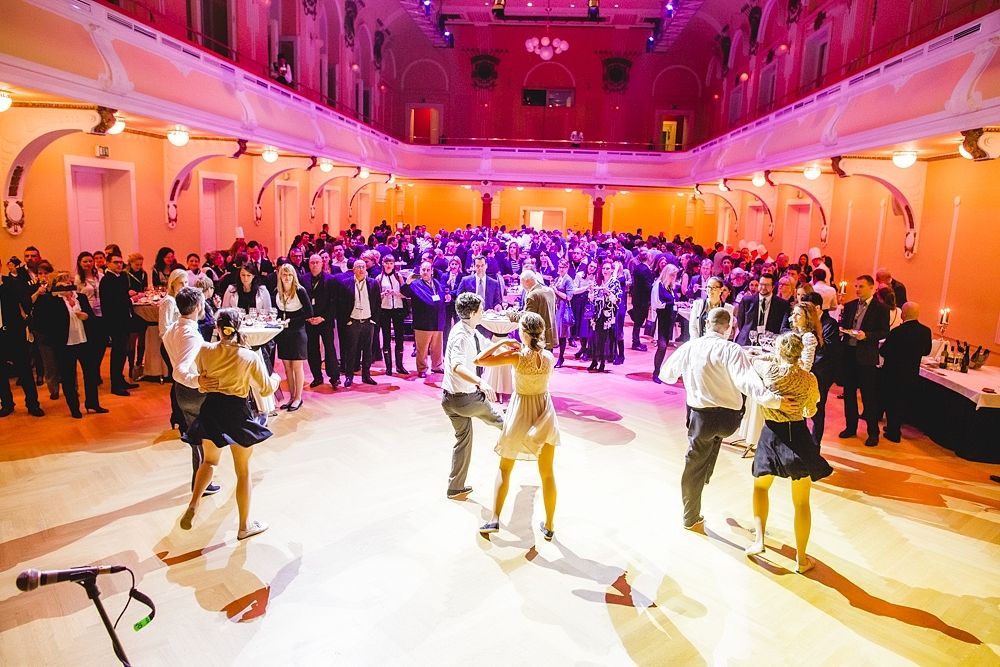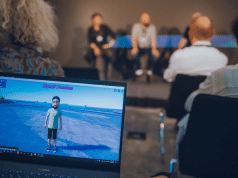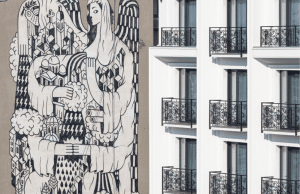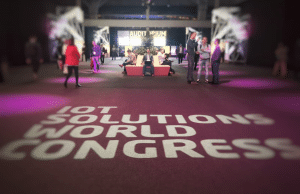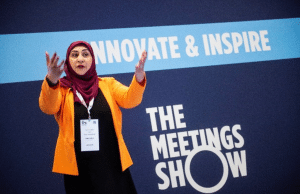How to organise meetings that Rock
If you want to compare individual works in music then we should, at least in regard of “serious” music, certainly take into account strict interpretations of the right tones in the right order and colour of sound. This leads to the standardization of musical notation, which is the basis for the upgrading of music in terms of free improvisation. Standardization in the music occurred with “notisation” already as early as the 11th century; supposedly even the ancient Sumerians knew some kind of standards for the music.
The meetings industry is young, and in many parts of the world it is not older than 10 years with the exception of congress veterans such as Vienna. There the convention bureau has been operating for 45 years, and for 23 they have been measuring the effects of the meetings industry and through various projects they have been successfully setting standards of the industry.
To function normally the meetings industry needs at least the basic music notation, but so far at the global level this does not yet exist. In the meetings industry there is a range of communications that form a complex network of relations vertically and horizontally as we like to say. Basically, the relationship between the client (in music the listener) and the agency (contractor). In order for the client to get the desired shape of the service including values and expectations.
Following a recent workshop in Croatia I realized how important pioneering work was carried out in Slovenia, when in 2007 we developed and introduced Slovenian meetings industry standards. In this area we were according to my knowledge among the first in the world that comprehensively processed the industry as a whole.
Preparation of standards was based on existing standards and recommendations in the field of business tourism, as recommended by DIN (Deutsche Industrie Norm), ICCA (International Congress and Convention Association), IAPCO (International Association of Professional Congress Organisers), APEX (Accepted Practice Exchange) AIPC (International Association of Congress Centres), MPI (Meetings Professional International) and other professional associations in the meetings industry. Moreover the whole model is based on comparable European models of business excellence, which emphasize the importance of innovations and is connecting strategic, organizational, technical and innovative aspects of the business.
The first part of the assessment in 2007 was based on an assessment of technical criteria that must be met by each member. Compliance with technical requirements is at the same time a prerequisite for regular membership in the Slovenian Convention Bureau. With the standardization a greater transparency was introduced for clients and an uniform treatment of comparable categories was ensured. It has also made possible more transparent transmission of demands among members.
The first 69 certificates were awarded to members in 2008. Envisaged validity of certificates is 3 years. For the future assessments in accordance with the model of business excellence were planned. In the process of internal and external assessments in addition to the technical criteria we would also evaluate the management and professional references of the tem, human resources management, vision, strategy and policy, process management, employee satisfaction, customer satisfaction, social influence and position the company as well as business results.
This way, the standards would allow for further development towards a comprehensive quality management and adequate remuneration and selection of the best members. Such an approach is also upgrading the classic “technicist” approach to standardization.
From the challenge of how to provide transparent exchange of demands among members of the public-private Convention Bureau an original project was created which in Croatia was used as a base for standardization of PCO agencies. In addition, they are successfully using it for start-ups of smaller regional convention bureaus everywhere where the principle of working is based on public-private partnership.
Thus, such a successful project in Slovenia is now already a bit dusty and at this year’s sixth anniversary of the certification and the fourth cycle of re-certification also because of international recognition it deserves more attention. It will also be necessary to refresh it with some new features and complement it with the missing standard for the catering business. Standardization is the foundation of professionalism of the convention bureau and a kind of license for the operation of its members. To neglect this area in such a competitive environment we simply can not afford.
Case study: Slovenian Meetings Industry Standards
In Europe, we find comparable models of standardization, but pledged to a lesser extent, or merely as recommendations for suppliers. Preparation of standards, under the leadership of the SCB (the Slovenian Convention Bureau), Visit Ljubljana Convention Bureau and with the conceptual, contextual and project support of the company GO.MICE was based on existing standards and recommendations in the field of meetings industry. The purpose of the standardization is to facilitate to buyers of services and also shorten the process of searching for a venue or for an organizer of the event. In this manner the buyer or the contracting authority in a transparent manner gets an insight into who is offering a service and a better overview of the quality of service offered by individual providers.
The Meetings Industry standards have been first implemented in spring 2008 with a validity of three years. Some among the suppliers have passed the certification process in more than one category.
Category A: LOCAL OR REGIONAL CONVENTION & VISITORS BUREAU (CVB)
Category B: PROFESSIONAL CONGRESS ORGANISER
Category C: DMC AGENCY
Category D: EVENT AGENCY
Category E: CONGRESS AND EXHIBITION CENTRE
Category F: CONVENTION HOTEL
Category G: HOTEL WITH CONFERENCE FACILITIES
Category H: OTHER CONGRESS SERVICES
Category I: SPECIAL VENUE
Categories A to D and category H are congress service providers, while categories E to G and category I are function space or / and accommodation providers.
The main characteristics of each standard
![]() Category A (local or regional Convention & Visitors Bureau) can apply to either local or regional levels. This bureau can be an independent legal entity or can operate as a part of an existing tourist board or office. Based on the indepth knowledge of the meetings and general tourism offer, its specific task is to promote and market the destination for congresses and meetings, as well as to develop / strengthen the network of all related providers and products at the local or regional level. Another important aim is to support bids for international congresses and meetings.
Category A (local or regional Convention & Visitors Bureau) can apply to either local or regional levels. This bureau can be an independent legal entity or can operate as a part of an existing tourist board or office. Based on the indepth knowledge of the meetings and general tourism offer, its specific task is to promote and market the destination for congresses and meetings, as well as to develop / strengthen the network of all related providers and products at the local or regional level. Another important aim is to support bids for international congresses and meetings.
![]() Category B (Professional Congress Organiser) is a key factor in organising congresses and other types of meetings. The PCO deals with a very broad area of tasks and offers a comprehensive technical support for implementing the most demanding events. From the viewpoint of congress service providers, the requirements specified for this category make it the most demanding one.
Category B (Professional Congress Organiser) is a key factor in organising congresses and other types of meetings. The PCO deals with a very broad area of tasks and offers a comprehensive technical support for implementing the most demanding events. From the viewpoint of congress service providers, the requirements specified for this category make it the most demanding one.
![]() Category C (DMC) is a tourist agency that is also specialised in the conference segment. Such a provider must hold an official licence for the tourist agency business and have a knowledge of the destination with a stress on its congress offer. A DMC can assist the Meeting Planner in an array of items related to the locality that will host the congress / conference / meeting. This includes everything from accommodation booking to recommendations on the menu selection for functions at special event venues. The Client also expects the DMC to be familiar with the general features / rules of the meetings industry. A DMC agency can also provide incentive and teambuilding programmes.
Category C (DMC) is a tourist agency that is also specialised in the conference segment. Such a provider must hold an official licence for the tourist agency business and have a knowledge of the destination with a stress on its congress offer. A DMC can assist the Meeting Planner in an array of items related to the locality that will host the congress / conference / meeting. This includes everything from accommodation booking to recommendations on the menu selection for functions at special event venues. The Client also expects the DMC to be familiar with the general features / rules of the meetings industry. A DMC agency can also provide incentive and teambuilding programmes.
![]() Category D (Event Agency) features agencies organising all kinds of events, including incentive and teambuilding programmes aimed at boosting team spirit. In most cases, these events are commissioned by the corporate sector / companies aiming to promote their products, build customer loyalty or raise their corporate profile in the business community.
Category D (Event Agency) features agencies organising all kinds of events, including incentive and teambuilding programmes aimed at boosting team spirit. In most cases, these events are commissioned by the corporate sector / companies aiming to promote their products, build customer loyalty or raise their corporate profile in the business community.
![]() Category E (Congress and Exhibition Centre) obviously features the venues with the largest facilities, both in terms of seating capacity in the plenary hall and the number of breakout rooms available. In addition, these venues must have foyer areas spacious enough for commercial exhibitions, catering (coffee breaks, meals) and other event-related purposes. The congress centre provides all the technical support needed to implement the most demanding events.
Category E (Congress and Exhibition Centre) obviously features the venues with the largest facilities, both in terms of seating capacity in the plenary hall and the number of breakout rooms available. In addition, these venues must have foyer areas spacious enough for commercial exhibitions, catering (coffee breaks, meals) and other event-related purposes. The congress centre provides all the technical support needed to implement the most demanding events.
![]() Category F (Convention Hotel) provides the broadest spectrum of services, encompassing hotel accommodation, conference rooms with technical equipment, and catering services. A convention hotel is required a minimum of 4 stars and the number of hotel rooms has to be in proportion with the largest function room. In addition, there must be a suitable proportion between the size of the largest plenary hall and the other conference / meeting rooms, as well as foyers. The venue must also have its own technical and catering service well geared to support the needs of congresses and meetings, as well as sales staff with experience and know-how in the meetings industry.
Category F (Convention Hotel) provides the broadest spectrum of services, encompassing hotel accommodation, conference rooms with technical equipment, and catering services. A convention hotel is required a minimum of 4 stars and the number of hotel rooms has to be in proportion with the largest function room. In addition, there must be a suitable proportion between the size of the largest plenary hall and the other conference / meeting rooms, as well as foyers. The venue must also have its own technical and catering service well geared to support the needs of congresses and meetings, as well as sales staff with experience and know-how in the meetings industry.
![]() Category G (Hotel with Conference Facilities) sets fewer requirements for hotel venues. A hotel needs to have at least 3 stars, one plenary hall and one more function room for breakout sessions. It also needs to have an adequately-sized lobby for catering services, guest registration and a smaller exhibition. In this criteria a restaurant is not considered as a conference facility, however there needs to be one, as guests who spend more than half a day at a meeting / conference in a hotel are usually offered lunch.
Category G (Hotel with Conference Facilities) sets fewer requirements for hotel venues. A hotel needs to have at least 3 stars, one plenary hall and one more function room for breakout sessions. It also needs to have an adequately-sized lobby for catering services, guest registration and a smaller exhibition. In this criteria a restaurant is not considered as a conference facility, however there needs to be one, as guests who spend more than half a day at a meeting / conference in a hotel are usually offered lunch.
![]() Category H (Other Congress Services) includes all congress service providers who are not classified in any of the other categories. This category includes air carriers, airports, providers of car rental services, providers of technical equipment, catering, computer services, media, consultancy companies, educational institutions, tourist agencies and other companies involved in the meetings busines.
Category H (Other Congress Services) includes all congress service providers who are not classified in any of the other categories. This category includes air carriers, airports, providers of car rental services, providers of technical equipment, catering, computer services, media, consultancy companies, educational institutions, tourist agencies and other companies involved in the meetings busines.
![]() Category I (Special Venues) includes all venues where events can be organised. They should of course have cultural, historic, architectural or technical value and at least one indoor function room. The venue needs to provide all the necessary support for the implementation of an event (technical, catering, access, parking, toilets, security, etc.).
Category I (Special Venues) includes all venues where events can be organised. They should of course have cultural, historic, architectural or technical value and at least one indoor function room. The venue needs to provide all the necessary support for the implementation of an event (technical, catering, access, parking, toilets, security, etc.).


